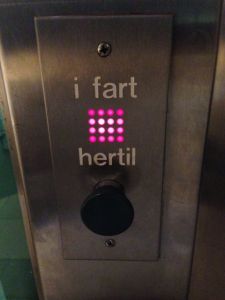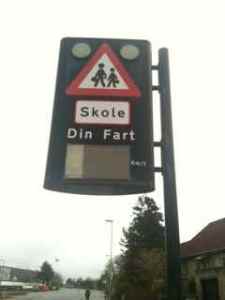On False Cognates
Little knowledge is a dangerous thing, especially when learning a language, because there are such things as false cognates. Usually defined as a word that exist in another language but have different meanings.
As an English speaker, many Romance languages are easier to learn than, say, if your language did not use Roman alphabets (like Chinese or Arabic). But that little advantage you have, can trap you with false cognates or words that look or sounds similar to the word you know.
In the grocery store, I see a bag of spice labeled “kommen”. No problem, K is often used instead of C in Danish, so it’s probably cumin. The seeds look a little darker, but the lighting in the store is very… hyggeligt (a word often translated as cozy or comfy…an adjective used to describe anything that contributes to a cozy atmosphere, like mood lighting). So I buy the bag, only to realize it was a bag full of caraway seeds I bought. Cumin, according to the dictionary in Danish, was spidskommen. Anyone know any good recipes that use tablespoonfuls of caraway seeds?? Applesin sounds like apple, right? Wrong! It’s orange. Thank goodness most of the packaged foods here have pictures on them, but once in a while, I still pick up a carton of orange juice thinking it was apple juice.
You are not any safer outside the grocery store: prægnant doesn’t mean you are expecting, but that you are precise. Sometimes it’s not even a one to one mapping of confusion: gift has two meanings but neither of them mean a gift. You say “jeg er gift”, it means “I am married”, but if you say “jeg har gift” it means “I have poison”. So gift is either married or poison, depending on the verb (and I’m sure people have thought about some metaphysics behind the coincidence of poison and being married being mapped to the same word, which in English, means a present).
The most popular one I still can’t get over is the word fart. I’m sure you’ve seen an image on the Internet with a road sign saying “Fartkontrol”. They aren’t talking about how you should control your gas, but speed or travel. It hasn’t gotten old in our almost 2 years in Denmark. Many tour busses here have big lettering that identify them as “turistfartbussen” or “turistfart”. I can’t help have an image of a vehicle full of tourists farting up a storm with no escape. There’s also an elevator sign that says “i fart” (where “i” is a preposition, often meaning in). There’s also a town called Middelfart. I know someone from there, but when we first met, and I asked him where he was from, he didn’t name the town, but mentioned the island he was from. I’m sure that was on purpose to spare me from inappropriately laughing (or accidentally fart because I’m trying my best not to laugh out loud). BTW, “din fart” in the photo above, means your speed.
But many of them aren’t false cognates, technically, but false friends (faux amis), the distinction being that false friends have similar roots but use over time has evolved in different geography to develop a different meaning. A good example is the word sky. It means cloud in Danish. I could see a Viking while in the British Isles, pointing at the clouds and talked as Danes do today… about the weather: “sky” this and “sky” that. The natives probably thought it was a Viking word for sky, because they were pointing up (and the UK weather must have been as grey back then as it is now). So in English, sky means sky, not cloud. Indeed, looking up the etymology dictionary confirmed this theory from Old Norse that sky did mean cloud back in the day. Studying false friends is essentially linguistics archeology, as I mentioned in my past post.
When you start learning how the words are actually pronounced, some of the false cognates don’t confuse you anymore. It felt odd when I saw stores or catalogs that said “bad“. Why so negative!? But it means bath. Danish has 3 different pronunciations for the letter d, including the “soft D” which is like “th” where the tongue sticks out a little but you are still trying to say the letter D. No Dane articulates it that far, so you rarely see their tongue stuck out and it sounds more like an “L”. So it makes sense… bad = bath, especially if you studied English spelling reformations. I also used to think, why is everyone “mad”? But it means food. When pronounced, it sounds more like [mel], perhaps our equivalent of meal (although the Danes have a separate word for a meal).
Here are more for your enjoyment: to love, is at elske, but at love means to promise (I think it’s cool that to love came from the word to promise). But don’t be quick to give your loved one “et hug”, because that means a cut, and not a hug. Gal is not a female pal: it means crazy. Delikate doesn’t mean delicate (that’s følsomt) but delicious (but I’ve never heard that word used when I see people eating, not even at Noma). And finally, ironically for a nation of mostly non-religious people, god is actually good.
P.S.
I suppose it’s better than being in Germany where many things are “die” this and “die” that (it’s a definite article for a female noun, e.g., die Frau means the woman, not the last words a woman heard before being murdered).





You have a stand-up comedian material.
LikeLiked by 1 person
Mange tak (and that doesn’t mean eat your thanks… it’s many thanks). Living abroad leads to comedy of errors (see http://wp.me/p5Aq7w-61 for my “communication” with IKEA’s customer support).
LikeLike